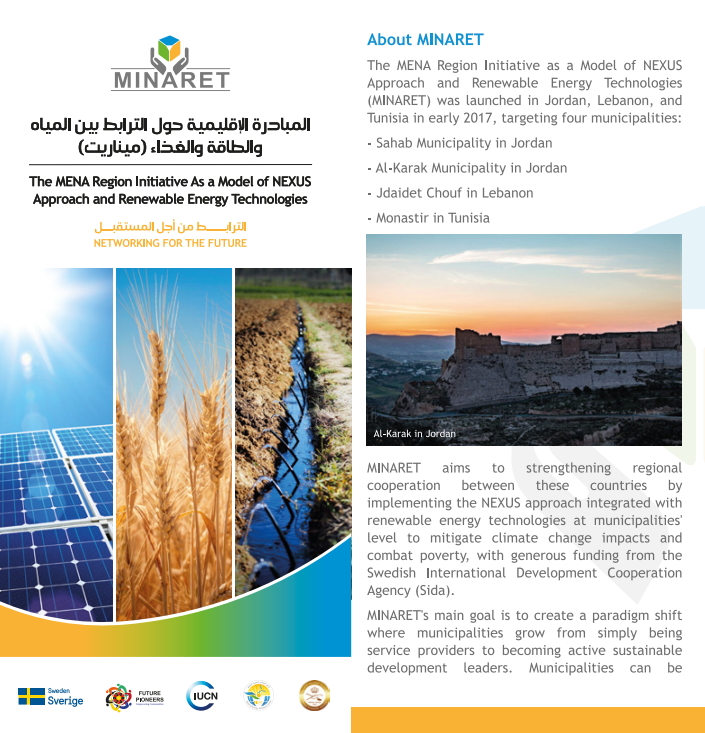MINARET is a four-year regional project working in the MENA region focusing on Jordan, Lebanon and Tunisia, aiming at strengthening regional cooperation within the MENA region through implementing NEXUS approach integrated with renewable energy technologies at municipality’s level to mitigate climate change impacts and combat poverty. The project is designed to address the unique sustainability challenges and opportunities of the MENA region by applying the "NEXUS" approach, which increases local and regional sustainability capacities using the synergies between renewable energy technology and efficiency, water management and food security.
The project also aims at:
- Building the municipality’s resilience to climate change through adopting renewable energy resources and energy efficiency applications, water management techniques and food security approaches;
- Strengthening institutional capacities of the relevant governmental authorities involved in the project, through promoting policy dialogues and implementing different capacity-building programs;
- Promoting inter-municipal regional cooperation to enhance good governance, and equitably dealing with the needs and human rights especially for refugee’s surviving in and around municipalities;
- Reinforcing the role of women, youth and marginalized groups in developing and implementing NEXUS approach;
- Developing a MENA dialogue platform focusing on knowledge share, education and lesson learned at national, regional policy levels.
- Funded by: The Swedish International Development Cooperation (SIDA)
- Executed by: IUCN ROWA and partners




